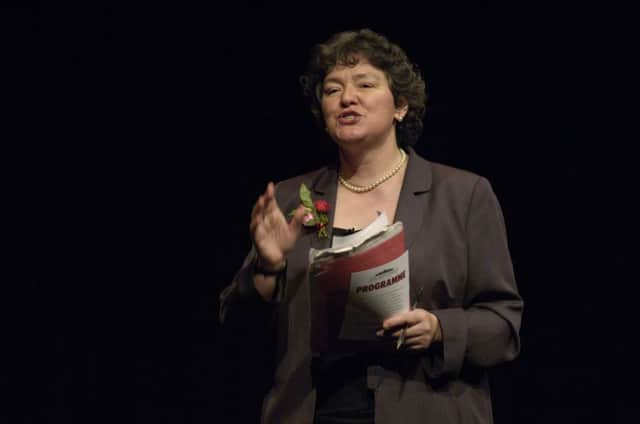Joyce McMillan: grassroots Edinburgh theatre growing


Yet in the past few years, Arts Complex at St Margaret’s has gradually become home to a growing network of grassroots Edinburgh theatre companies with small budgets, big ambitions and a fiercely professional approach. Late last year, two of the companies, Tightlaced and Black Dingo, launched their own performance space here, a 35-seat studio called Discover 21, along a bright corridor on the ground floor of the building.
Tonight, the show is a powerful monologue about the Hillsborough disaster, Luke Barnes’s Bottleneck, presented by a young group from St Andrews called Riot. The previous night, it was a new play set in Edinburgh, by local writer Eve Murray. And before the show, I have an appointment to meet Amy Gilmartin of Edinburgh’s Urban Fox theatre company, who has been attracting online and newspaper attention this week for her new Home Turf initiative, designed to bring together young Edinburgh-based professional companies appearing on this year’s Edinburgh Fringe.
Advertisement
Hide AdAdvertisement
Hide AdThe idea is to make sure that hometown companies on the Fringe are aware of each other’s work, are able to give each other practical help where they can, and – above all – can share the costs of publicising their work and flagging up their presence.
“When we were on the Fringe last year,” says Gilmartin, “people kept asking us, towards the end of our run, when we were ‘going home’ and we just felt it was time to make people aware that some of us are at home, here in Edinburgh, and that theatre happens here all year round.”
Like the launch of Discover 21, in other words, the Home Turf initiative is another sign that Edinburgh’s grassroots theatre scene is booming, despite minimal amounts of public funding, and the notorious difficulty of finding space for experimental arts activity in Scotland’s most expensive city. The Village Pub Theatre – purveyors of delicious evenings of ten-minute new-play readings at the Village Pub in South Fort Street, Leith – recently completed a week’s residency at the Traverse. Andy Corelli’s Leith-based Siege Perilous company is gradually making a name for itself with full productions of new work, despite shoestring resources, and the recent Hidden Door Festival in the vaults at East Market Street featured a packed pop-up performance of Joel Mason’s Once Was Human, a heartbreaking play about the traumatic experience of Afghan war veterans trying to readjust to civilian life.
Even if the Home Turf initiative succeeds in giving some of these companies a higher profile on the Fringe, though, the sheer economic pressure on grassroots theatre in Edinburgh is bound to raise the question of whether the current powerful surge of activity can be maintained. Most of those involved in the scene can only survive by taking on a full-time day job or jobs, on top of hours of theatre work.
Yet Gilmartin is hopeful. “For Home Turf, we’re looking to find sponsorship from local businesses, because we feel they might want to be involved in a Fringe project with such a strong Edinburgh identity.
“And in general – well, it’s not as if there’s a huge gulf between us and the mainstream theatres in Edinburgh. I’m part of the young director’s group at the Traverse, for example, and they’re very helpful and supportive – in fact a lot of our playwrights were part of last year’s Traverse 50.
“I’m very excited about what’s happening in Edinburgh now. It’s tough, but we’re all very, very determined, up at seven o’clock in the morning building sets, all of that. Because it’s what we want to do, and in the end, that determination makes it sustainable, come what may.”